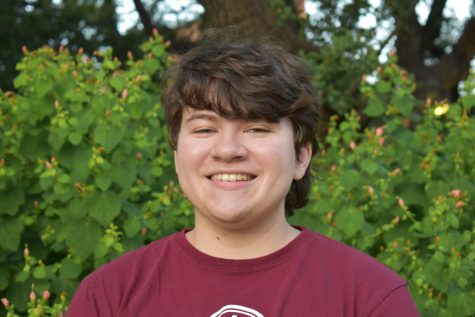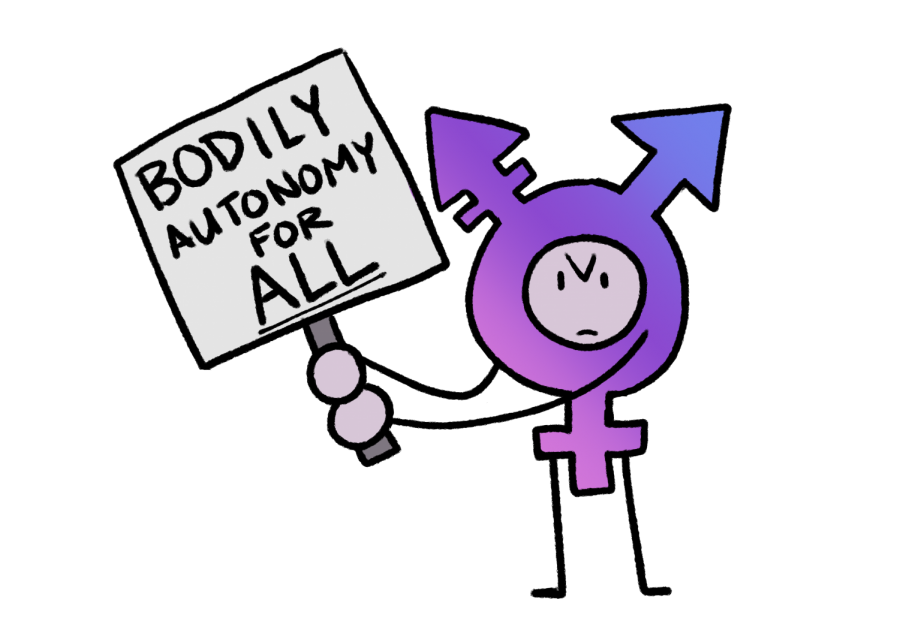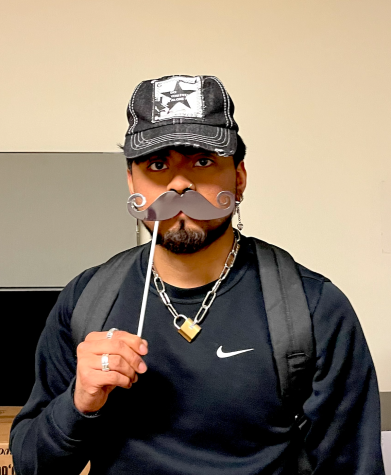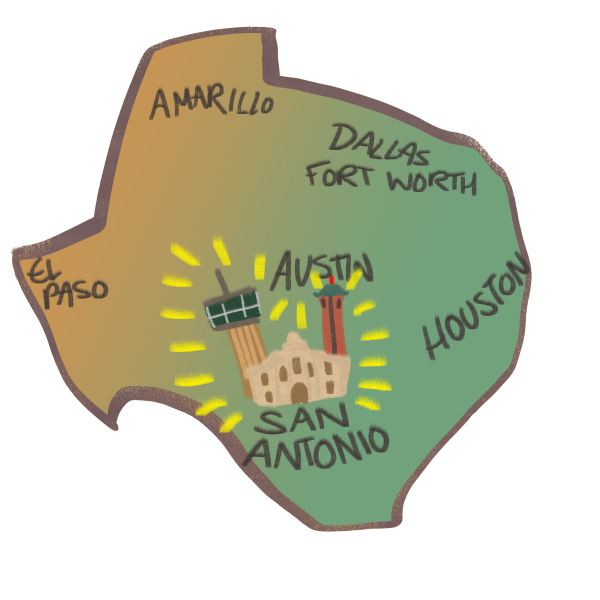The need for inclusive language in abortion activism
Despite my anger, grief, frustration and every other negative emotion possible, I’ve had a hard time talking about Texas’ new law largely banning abortions that occur after six weeks of pregnancy. I’ve been quiet when I’m usually quick to speak about issues like this because I continue to hear that “men don’t get an opinion.” I’m not defending the patriarchal origin of abortion bans and the sexist culture in which they’re instituted. However, I’ve felt shut out of the conversation due to its narrowly gendered nature. As a trans man, I do get an opinion: Pro-choice activism must be gender expansive.
To put it bluntly, I could possibly get pregnant. I, as a man, might someday need abortion services. I don’t say this for the shock value, but some may feel shocked because, by and large, debates about abortion laws have been debates about women’s rights. When you think about pregnancy and abortion, you likely don’t consider the men sitting in a clinic, who are there not to support a partner, but for their own needs, and not only men or women; a person of any gender can have an abortion.
However, let’s be realistic: Trans and non-binary individuals make up a tiny fraction of abortions. The Guttmacher Institute’s abortion provider census in 2017 recorded 862,000 abortions in 2017, of which only about 500 belonged to trans or non-binary people. Of course, this number is likely much higher, since only 23% of clinics in the United States were trans-inclusive that year, meaning many non-women were likely recorded as such and sacrificed accurate identification and treatment to get the healthcare they needed.
This is why we need to emphasize the gender neutrality of reproductive healthcare. Trans and non-binary people remain invisible in all spheres, but especially in healthcare. We’ve fought our own fights for access to gender-affirming care, and the lunges made at our self-determination are absolutely connected to the recent abortion law. It’s no coincidence that Texas, the same state depriving people of the right to have an abortion, currently has 17 filed anti-transgender medical bills. A majority cis, male, white, evangelical government is waging war on the bodies of women, trans people and all those who don’t conform to the gender binary. Ensuring that awareness surrounding abortion is inclusive will strengthen us when we fight back.
The new law will rule out 85% of abortions that take place after six weeks, so clinics providing fewer abortions might begin to minimize their services. Planned Parenthood is one example of a clinic known for abortion services that also functions as a trans healthcare hub. Among other referrals, they provide hormone replacement therapies that help trans and non-binary people alleviate gender dysphoria. Access to hormones is already low, with only 49% of trans people who want hormones being able to get them. Like with abortions, trans people will still access hormones even if their options are reduced, just unsafely. Abortion clinics are often safe places for trans and non-binary people to get typically gender-associated physical exams like breast cancer screenings.
While abortion is the current vehicle being used to talk about bodily autonomy, the conversation reaches further into healthcare than terminating a pregnancy. Inclusive language is important so that trans and non-binary people become visible and comfortable speaking about how this hot mess affects everyone.
Our voice in reproductive healthcare can speak to how access to abortion services goes hand-in-hand with access to gender-affirming care. If we expand our fight to regain reproductive rights beyond a women’s issue, when we win, it’ll be for us all.

I am a senior French and Earth Systems Science double major from St. Louis, MO. When I'm not wearing my EIC hat, I am also a Chapel | Spiritual Life Fellow,...

I am a senior Art and English double major from San José, California. I also have an accidental Medieval and Renaissance minor that I picked up through...















